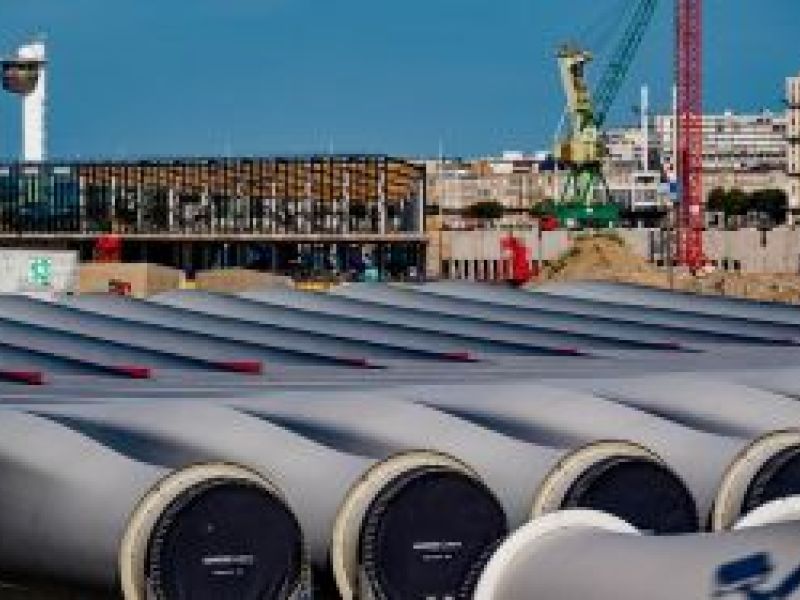This month, the French court ruled against former National Rally president Marine Le Pen’s appeal contesting her automatic resignation as a local councillor in the Pas-de-Calais département, following her conviction in March for the embezzlement of millions of euros of public funds.
Le Pen has run for France’s highest office three times and been a defining part of the French political landscape, almost shocking the world with an unlikely victory against Macron in the last election. But the recent embezzlement trial and her ban from running for presidential office sent ripples through the nation's political landscape—with potentially significant ramifications for the 2027 presidential elections, business in France, and the country as a whole.
What’s happened to Le Pen?
Le Pen’s exclusion follows the conclusion of a high-profile embezzlement trial, in which she was found guilty of misappropriating European Parliament funds during her time as an MEP. The court found that Le Pen, along with several colleagues, had used parliamentary allowances designated for accredited assistants to pay party staffers working in France instead. This was in violation of EU regulations, leading her and her colleagues to not only receive suspended prison sentences, but also be barred from holding public office for several years—a sanction that effectively removes her from contention in the 2027 presidential race.
Related article: How to start a business in France in 8 steps
With Le Pen’s exit, the RN faces a major inflection point. Having come close to defeating Macron in the last parliamentary election, the upstart party now has the dual challenge of redefining its leadership and its policy direction. Jordan Bardella, a prominent figure within the party, has been vocal about RN’s economic priorities, with proposals including a reduction in the retirement age to 60 for those who began working at 20, cutting VAT on essential energy products, and introducing a financial wealth tax to replace the existing real estate wealth tax.
Where do the French parties currently stand?
The 2027 presidential elections may seem like a distant prospect for businesses concerning themselves with the current economic climate. For France, however, they could be the culmination of a long-running political saga—and the start of a very different era for France, both politically and economically. Whoever wins, the ramifications could be substantial, affecting France’s status as a destination for investors and entrepreneurs.
National Rally
Even before the recent court case around Marine Le Pen, the RN had been looking to reposition itself under younger leadership. The party is now led by 29-year-old Jordan Bardella, and remains committed to an agenda of economic nationalism and social protection for French citizens. As well as motivating the party’s traditional base—one of its flagship proposals is to reduce the legal retirement age to 60 for anyone who began working before age 20—Bardella is also helping to mobilise younger voters.
The cost of living remains a hot topic in France, and the RN aims to combat it with a significant reduction in VAT on energy products (i.e. petrol, diesel, gas, and electricity), cutting the current rate from 20% to 5.5%. Additionally, the party proposes scrapping the current real estate wealth tax (Impôt sur la fortune immobilière, or IFI) and replacing it with a broader tax on people’s overall financial wealth.
The RN’s economic patriotism also extends to state procurement and industrial strategy. Other proposals include favouring French suppliers in public contracts and promoting domestic production to protect jobs and reindustrialise key sectors. Finally, the RN continues to push for tighter immigration policies, including reducing access to social benefits for foreign nationals and implementing a “national preference” policy for jobs and housing.
Related article: Five expat business ideas to find success in France
From a business perspective, these policies could provide a short-term boon at least. Consumer spending is likely to rise as a result of these windfalls, and the party’s focus on nationalism and protectionism could help local SMEs, or at least those that have managed to integrate. However, they also have the potential to increase public deficits, and introduce similar protectionist barriers to those being instigated by Trump, potentially deterring foreign investment.
Renaissance
The centrist party founded by President Emmanuel Macron won’t be led by him at the next election, but whoever replaces him is likely to continue his legacy of pro-business, technocratic reform. The latest coalition built by Macron with Renaissance at its head has emphasised fiscal discipline, targeting €10 billion in public spending cuts without increasing taxes. This has put them at loggerheads with left-wing parties, as has their bid to preserve the controversial pension reform passed in 2023, which raised the legal retirement age to 64.
Renaissance argue that the reform is essential to preserve the sustainability of France’s social welfare system, but critics consider it a watering down of hard-won rights for working people. The party’s position isn’t helped by its support for further ‘flexibility’ in the labour market, aiming to make hiring and firing easier for employers, especially in smaller enterprises and start-ups.
Less controversially—though only just—Renaissance continues to prioritise the green transition. This includes subsidies for clean energy innovation, electric vehicle adoption, and building retrofits aimed at reducing carbon emissions. The party is particularly committed to maintaining France’s position as a “Startup Nation” by expanding tax incentives for tech firms and R&D-heavy companies, measures that will ease the minds of foreign investors and startups looking to find a home in France.
Other contenders
While the tendency is to focus on the incumbent and the challenger, there aren’t only two horses in the presidential race. The biggest traditional contender is Les Républicains, France’s established centre-right party. In many ways, they represent a more extreme version of what Renaissance have already implemented, with a focus on cutting public spending and stimulating private enterprise. The party has proposed slashing €25 billion in public expenditures, targeting areas like welfare programmes and administrative overheads. Production and payroll taxes would be reduced, while the party would look to end France’s beloved 35-hour work week, allowing companies to negotiate longer working hours.
More popular perhaps is their emphasis on energy independence. France is already a world leader in nuclear energy, and this has only become more imperative as the stability of fossil fuel prices has fluctuated. Les Républicains would also look to push longer work hours and reduced labour costs—all music to the ears of businesses and entrepreneurs, but likely to be fairly terminal for their chances of getting elected, having already lost 22 seats at the last one.
Related article: France entrepreneur visa – everything you need to know
Perhaps more interesting in terms of the next election are Nouveau Front Populaire. While the exact makeup of parties and coalitions going into the 2027 may look different, all of the parties in the NVP share a fairly unified vision: a desire for wealth redistribution, state investment, and social justice. Chief among their proposals is to raise the net monthly minimum wage to €1,600, something which would be likely to both stimulate consumer spending and increase labour costs for employers.
The coalition would also look to reinstate the wealth tax scrapped under Macron, and to tack on a climate component. This is one aspect of a wider wave of investment in green infrastructure, including improvements to public transport, building insulation, and a greater focus on renewables. This could create major opportunities for firms in the energy and construction sectors—a trade-off that businesses would need to consider alongside the potential for bigger operational costs.
But the one who is leading the polls as the French people's favorite politician, is Jacques Chirac's former Prime Minister, Dominique de Villepin. Known for his historic speech at the UN during the second Iraqi crisis – opposing military action – Dominique de Villepin has just created a political party for the 2027 elections, La France Humaniste. Following a Gaullist and republican line, it could create a surprise in the next elections by standing above political divisions.
Can the National Rally win in 2027?
The simple answer is yes—with caveats. The party has made huge strides in recent years, and onlookers should be wary of doubting their ability to succeed simply because it hasn’t happened yet. While other parties (and voters as a whole) banded together to stop them in recent elections, it’s hard to say definitively that the National Rally have hit a ceiling. With that said, if Le Pen does fail to appeal her conviction or otherwise elect to step back from leadership, the party faces an inevitable challenge in how it chooses to move forwards.
The RN’s strategic recalibration could draw inspiration from a long-standing ally: Nigel Farage, and his party’s recent electoral successes in the United Kingdom. Reform have shown a remarkable ability to transform from a one-issue party in UKIP to a new party with broader policies and appeals, and become a serious political contender as a result, securing control of several councils and five parliamentary seats. The National Rally might look to adopt similar grassroots strategies, looking to build credibility by winning big in the 2026 municipal elections, and demonstrating their leadership credentials.
Related article: Company formation in France
Much like Farage, Le Pen is an old hand of the French right-wing, and has been seeking office for decades. At the very moment where the National Rally seems best poised to deliver this, though, she faces both the ignominy of being banned from it, and the threat of a popular young leader looking to assume her position. How she approaches the outcome of her appeal—and whether the party can bring along her traditional supporters under new leadership—may define their electoral prospects going forwards.
One area where National Rally are unlikely to emulate Reform is France’s EU membership. The only outwardly ‘Frexit’ supporting party in France, the recently-formed Reconquête! failed to win any seats in the 2024 legislative elections. Though they can’t be completely discounted as a force in French politics (they did win five European Parliamentary seats), this is one area in which France has a level of security and general appeal for businesses.
Marine Le Pen’s exclusion from French politics heralds a period of transformation within both the National Rally and the broader political spectrum. As we tick towards the 2027 presidential elections, the only certainty is that the National Rally will continue to play a major role in defining the direction of French politics, and the future of French businesses. We recommend keeping an eye on the whole process—and on our ongoing coverage right here with our business advice blog!







